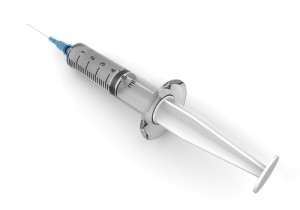目次
About Vaccines

Vaccines are preventive medicines against infectious diseases. The contents of a vaccine include dead pathogens (such as viruses) or attenuated pathogens with reduced toxicity. They are medicines designed with the principle of “fight fire with fire.” Most vaccines target infectious diseases with high mortality rates or those without effective treatments.
When a vaccine is administered into the body, it tricks the immune system into thinking a pathogen has invaded, thus training it to remember the type of pathogen. This trained immune system is expected to work efficiently when the actual pathogen invades.
Note that vaccines do not have therapeutic effects, so they are ineffective in dogs and cats that are already infected, and there is a risk that they might even worsen the condition.
The most common vaccine is the rabies vaccine, with annual administrations reaching 5 million. There are also numerous vaccines available for dogs and cats.
Why Vaccines Are Not Recommended for Dogs and Cats with Cancer
Administering vaccines to dogs and cats almost certainly causes some level of immune disruption. This can lead to the emergence of diseases that the immune system fights off, including infections and cancer.
Therefore, vaccinating a dog or cat with cancer might promote the proliferation of cancer cells. Even if the cancer is well-controlled, vaccination could lead to a sudden deterioration in conditions.
In cases where the animal is already exhausted from cancer treatment or the progression of cancer itself, vaccine side effects are expected to manifest more severely. The worse the physical condition, the more likely it is to experience stronger side effects from the vaccine, further deteriorating their health.
Many veterinarians are likely to advise against vaccinations during or after cancer treatment, but there are also many who actively recommend it. Apart from the rabies vaccine, vaccines are not mandatory. It is up to the pet owner to decide whether to vaccinate, taking the above factors into consideration.
※Note: The rabies vaccine is legally required, so no veterinarian publicly opposes it.
When facing the potential loss of life due to cancer, is there a necessity to worry about preventing other diseases? During cancer treatment, it is considered that the focus should be on the cancer treatment itself, and the priority of vaccinations is very low.
It is also possible to avoid even the rabies vaccination if undergoing cancer treatment. Please refer to the article below for more information:
About Deferral Certificates for Rabies Vaccination
Cases When Vaccination Should Be Delayed Other Than Cancer
The risk and side effects of vaccines can significantly vary depending on the condition of dogs and cats. In the following cases, careful consideration should be given to whether or not to proceed with vaccination. If multiple conditions apply, even more caution is warranted.
Not in good health.
It is not limited to vaccines, but administering drugs to an animal in poor health can easily lead to side effects or severe adverse reactions.
If the pet is unwell, do not hesitate to postpone the vaccination and wait until it recovers before proceeding with the vaccination.
Previous adverse reactions to vaccinations.
Some dogs and cats become unwell after vaccination. While they cannot communicate directly, symptoms like “nausea,” “chills,” “fatigue,” “numbness,” “dizziness,” “headaches,” and “joint pain” might have appeared. Pets that have shown health issues after a previous vaccination are more likely to experience similar or even more severe adverse effects with subsequent vaccinations.
Do not assume “it will be fine this time” without basis; consult a veterinarian for medical and scientific advice before making a decision.
Old age.
The immune function of elderly dogs and cats is naturally weaker compared to when they were younger. There is also a significant possibility that they may harbor small cancers in their bodies. Vaccination could trigger the onset of cancer or an infectious disease.
While it takes time for cancer to manifest, making it difficult to prove a causal relationship with vaccines, logically, it can be inferred that vaccines carry substantial risks.
Older pets have a diminished immune response compared to their younger counterparts. Vaccinating pets with weakened immune systems may not provide the expected benefits due to inadequate immune education.
Additionally, elderly animals have a reduced ability to excrete drugs, making them more susceptible to side effects.
Receiving steroids or other immunosuppressants.
Even young dogs and cats receiving immunosuppressants can experience similar issues to elderly pets, making it hard to gain benefits from vaccinations.
The primary immunosuppressants are steroids (such as prednisolone). It is generally advisable to vaccinate after the course of steroid treatment is completed.
If continuing with immunosuppressants is unavoidable, carefully weigh the benefits and risks of vaccination.
Adding Immune Measures to Cancer Treatment
At the Cordy Laboratory, we are conducting research on adding Cordy as an immune measure in veterinary cancer treatment to potentially improve prognosis.
Currently, many reports suggest that even if tumors do not completely disappear, there may be improvements in energy, appetite, and overall quality of life (QOL).
If you have any questions, please feel free to contact us.
監修獣医師:林美彩 所属クリニック:chicoどうぶつ診療所

代替療法と西洋医学、両方の動物病院での勤務経験と多数のコルディの臨床経験をもつ。 モノリス在籍時には、一般的な動物医療(西洋医学)だけでは対応が困難な症例に対して多くの相談を受け、免疫の大切さを痛烈に実感する。
ペットたちの健康維持・改善のためには薬に頼った対処療法だけではなく、「普段の生活環境や食事を見直し、自宅でさまざまなケアを取り入れることで免疫力を維持し、病気にならない体づくりを目指していくことが大切である」という考えを提唱し普及活動に従事している。
所属:






